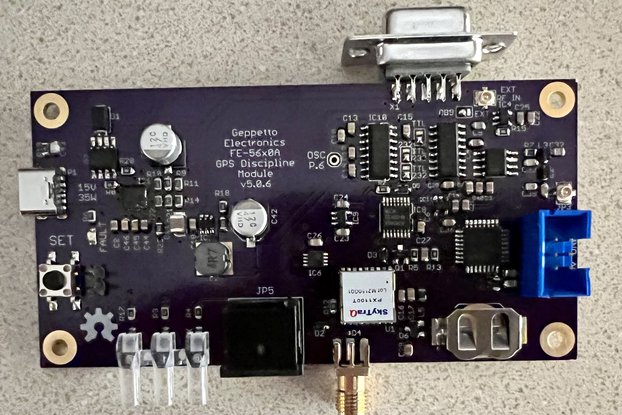The WSPR Desktop transmitter is a standalone WSPR transmitter with built-in GPS for the amateur radio experimenter.
Designed by ZachTek in Sweden
This product is no longer available for sale.
The seller may be offering an improved version or it may be hanging out on the beach, enjoying the retired life.
Some quick features: 1: Standalone operation after initial setup with a PC. 2: For transmission on four HF Bands. 3: Is powered from USB. 4: Comes with built in GPS module and included external GPS a…
Read More…Some quick features:
1: Standalone operation after initial setup with a PC.
2: For transmission on four HF Bands.
3: Is powered from USB.
4: Comes with built in GPS module and included external GPS antenna.
5: Use the PC configuration software to set up your call-sign and after that it can operate in standalone mode
6: Timing and Maidenhead position is automatic from the GPS network.
7: Contains an Arduino with open source software. Schematic is published on Github.
8: Available in three models.
The WSPR Transmitter works on four or more Ham band from 136kHz to 70MHz and is powered from 5V. Once you have set up your call-sign it will operate independently indoors or outdoors with minimal requirement of interaction from the user. There is no need to have it connected to a computer, no need to set the time or to interact with it in any way.
The GPS provides the timing necessary to ensure that the WSPR transmission is occurring at the correct time. The GPS also provide the position information needed to calculate the Maidenhead code that is transmitted. This is a great feature as it means the users don’t have to know the Maidenhead grid before getting on the air. This can be very convenient if you take the transmitter to a new location or use it in a mobile application.
The output power around 300mW is, in my opinion, just perfect for WSPR operation. With a dipole antenna it will give you continent coverage most of the time but when the conditions are favorable it will give you trans-continent contacts so at this power level it is easy to see how the daily conditions change. The input power requirements are 5V 100mA at idle and 250mA when transmitting. This makes it possible to use a laptop computer, phone charger or a USB Power pack to power it in mobile or stationary operation mode. What better way to test out your portable antennas than to stick this in your backpack with a USB power pack and try out different antennas or mobile QTHs?
For more information including links to the Source code and Schema - see the documentation page. Link to documentation page
Link to PC Software for configuration
The product comes with an external GPS antenna and a USB cable but without a power adapter.

$22.00
Free Shipping!

$178.00
Free Shipping!

$35.00
Free Shipping!

$109.95
Free Shipping!
By clicking Register, you confirm that you accept our Terms & Conditions
We recognize our top users by making them a Tindarian. Tindarians have access to secret & unreleased features.
We look for the most active & best members of the Tindie community, and invite them to join. There isn't a selection process or form to fill out. The only way to become a Tindarian is by being a nice & active member of the Tindie community!
